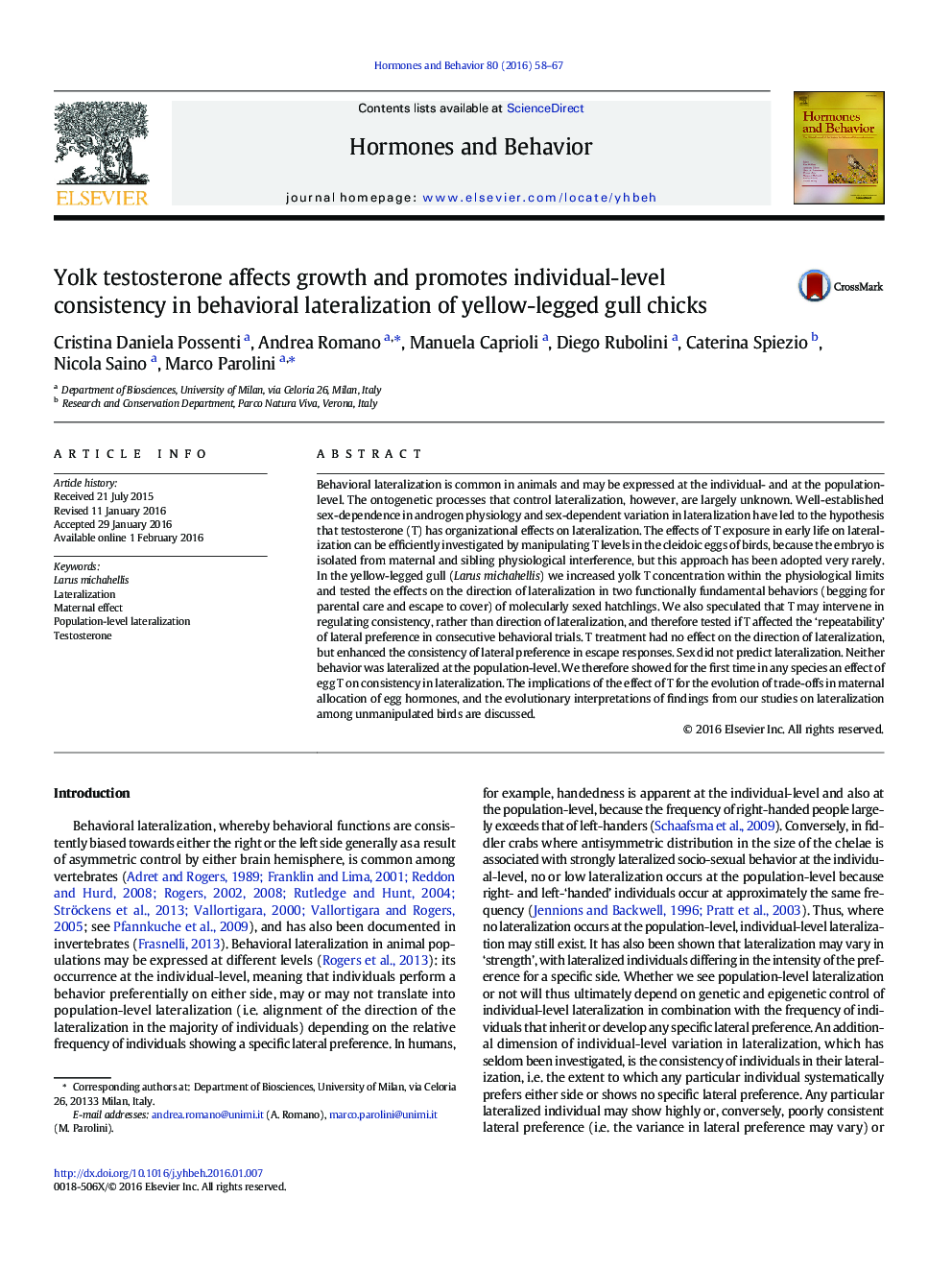| کد مقاله | کد نشریه | سال انتشار | مقاله انگلیسی | نسخه تمام متن |
|---|---|---|---|---|
| 323375 | 540628 | 2016 | 10 صفحه PDF | دانلود رایگان |
• We tested the effect of egg testosterone on behavioral lateralization of gull chicks.
• A physiological dose of testosterone did not affect the direction of lateralization.
• Testosterone treatment caused more consistent individual-level lateral preference.
• We found no evidence for sex-dependent or population-level lateralization.
Behavioral lateralization is common in animals and may be expressed at the individual- and at the population-level. The ontogenetic processes that control lateralization, however, are largely unknown. Well-established sex-dependence in androgen physiology and sex-dependent variation in lateralization have led to the hypothesis that testosterone (T) has organizational effects on lateralization. The effects of T exposure in early life on lateralization can be efficiently investigated by manipulating T levels in the cleidoic eggs of birds, because the embryo is isolated from maternal and sibling physiological interference, but this approach has been adopted very rarely. In the yellow-legged gull (Larus michahellis) we increased yolk T concentration within the physiological limits and tested the effects on the direction of lateralization in two functionally fundamental behaviors (begging for parental care and escape to cover) of molecularly sexed hatchlings. We also speculated that T may intervene in regulating consistency, rather than direction of lateralization, and therefore tested if T affected the ‘repeatability’ of lateral preference in consecutive behavioral trials. T treatment had no effect on the direction of lateralization, but enhanced the consistency of lateral preference in escape responses. Sex did not predict lateralization. Neither behavior was lateralized at the population-level. We therefore showed for the first time in any species an effect of egg T on consistency in lateralization. The implications of the effect of T for the evolution of trade-offs in maternal allocation of egg hormones, and the evolutionary interpretations of findings from our studies on lateralization among unmanipulated birds are discussed.
Journal: Hormones and Behavior - Volume 80, April 2016, Pages 58–67
